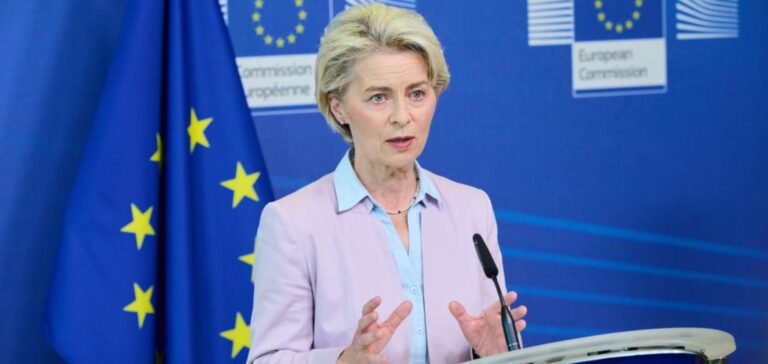The EU is looking for solutions to soaring energy prices. Thus, several proposals will be discussed tomorrow, September 9, at the meeting of European energy ministers. The European Commission is considering clawing back excess revenues from non-gas-fired power generators.
EU wants to redirect surplus revenues
These steps would be taken to use the money collected to protect consumers facing rising bills. This plan is part of the measures that Brussels intends to adopt to reduce the impact of gas and electricity costs.
The areas concerned are therefore wind and solar farms, biomass plants, nuclear power plants and coal producers. Thus, the EU wishes to apply a revenue cap of €200/MWh to producers in the targeted areas.
In addition, price caps would be applied and excess revenues would only be collected after the companies have paid their bills. Thus, the levy would not affect prices on the European exchange-traded market.
The President of the European Commission, Ursula von der Leyen, says:
“We want to redirect these windfalls to help particularly hard-hit households and businesses adjust.”
In fact, shares of Verbun, RWE, Engie and EDP Renovaveis have risen between 4 and 13% recently.
The price of electricity in the EU is generally set by gas-fired power plants. However, the cap could reduce the cost of electricity produced at the plants.
The measures will free up money for governments to redistribute. In this sense, consumers and the industry will be able to benefit from financial aid to face the price explosion.
The current situation also highlights the desire to manage money more responsibly. In fact, Othmar Karas, vice-president of the European Parliament, has spoken out on this subject:
“Energy providers and finance ministers are currently making exceptionally high profits. These extra profits should be invested in reducing charges, renewable energy and infrastructure development.”
Additional measures
The proposals issued by the European Commission also include a 10% monthly reduction in electricity consumption. This will need to be calculated in relation to the average for the same month over the period from 2017 to 2021. An additional 5% discount may be requested during periods of higher prices.
The measures mentioned will be examined on 9 September by a committee formed by the European energy ministers.






















